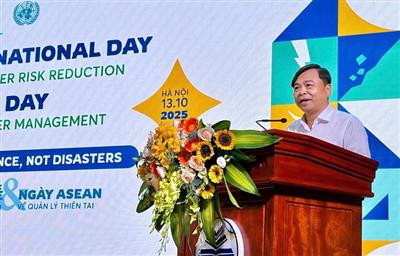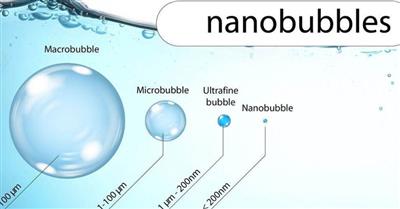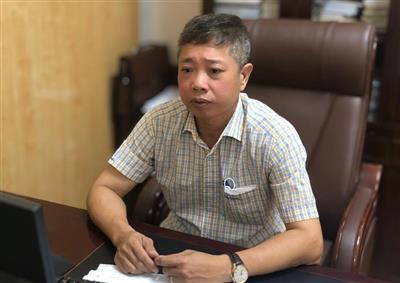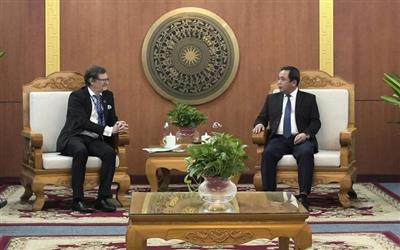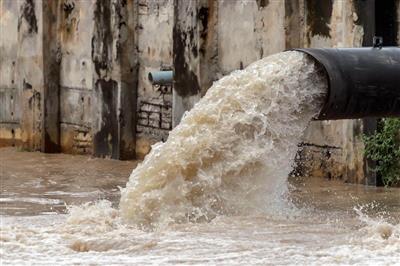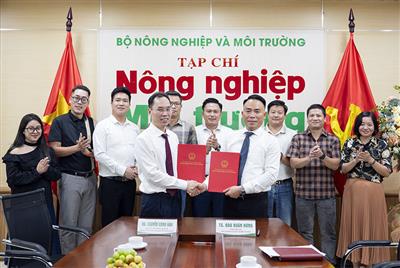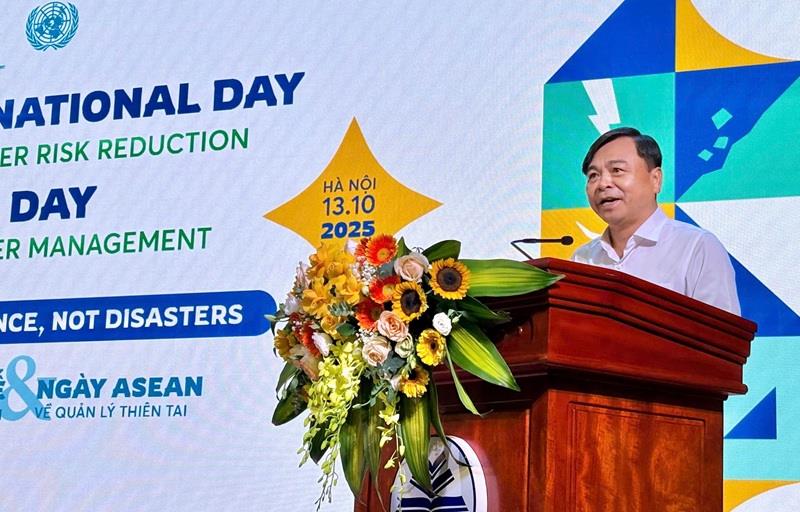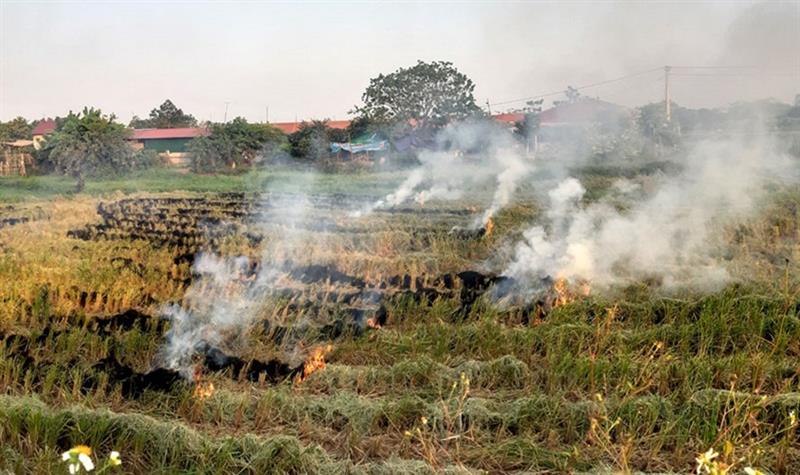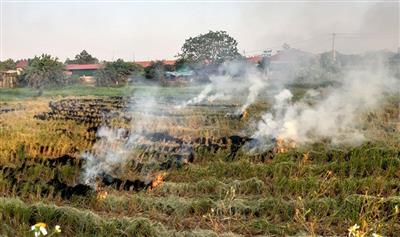
Experts and policymakers on Vietnam’s path to Net Zero
16/10/2025TN&MTOn October 15-16, a training course on “Enhancing press and media capacity for carbon neutrality” was held in Nghe An Province, gathering policymakers, experts, enterprises, and journalists. The event focused on sharing experiences, solutions, and strategies for Vietnam’s Net Zero commitments. Contributions from managers, specialists, and business representatives highlighted that achieving carbon neutrality by 2050 requires coordinated action across policy, agriculture, business, and media sectors.
Strengthening policies to promote Net Zero
Dr. Nguyen Tuan Quang, Deputy Director of the Climate Change Department, Ministry of Agriculture and Environment
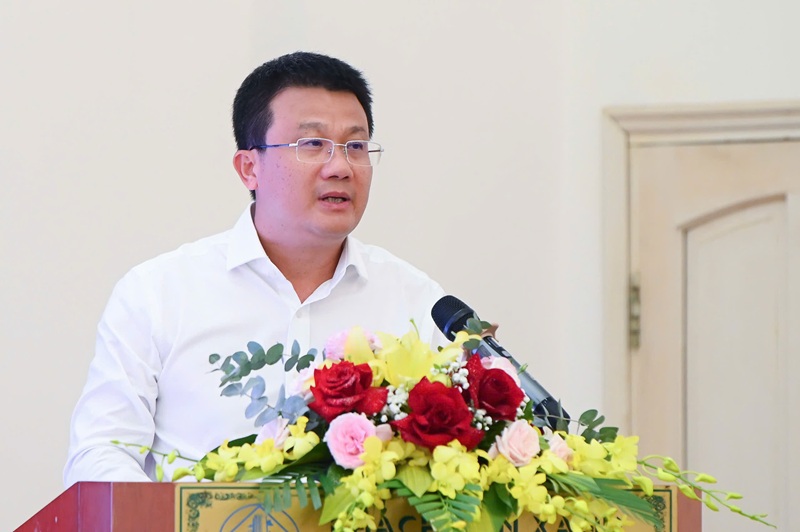
Dr. Nguyen Tuan Quang highlighted that Vietnam pledged to achieve net-zero emissions by 2050 at COP26. Following the conference, a National Steering Committee was established to implement these commitments, alongside the issuance of a national plan detailing tasks and solutions for Net Zero. Over the past years, a comprehensive policy and legal framework for carbon neutrality has been developed.
Ministries, agencies, local authorities, enterprises, and financial institutions have actively implemented commitments, yielding significant progress toward Net Zero goals.
Dr. Nguyen Tuan Quang emphasized that achieving net-zero emissions by 2050 requires the simultaneous deployment of multiple measures. First, improving policies and legal frameworks is necessary to create a coherent regulatory environment supporting nationwide carbon neutrality initiatives. In addition, policies providing investment incentives, economic tools, and mechanisms are essential to mobilize both social and financial resources from the business sector for climate action.
New and existing projects must adopt low-emission technologies and production processes while participating in greenhouse gas reduction mechanisms aligned with domestic regulations and international standards. Comprehensive strategies include transitioning to renewable and clean energy, efficient use of natural resources, applying circular economy models, expanding forests and ecosystems, including coastal ecosystems, enhancing carbon sequestration and storage, and implementing carbon pricing through taxes and a domestic carbon market.
“Crucially, media engagement is needed to raise awareness among authorities, sectors, businesses, financial institutions, and the public to build social consensus for Net Zero implementation,” Dr. Quang noted. He added that communication not only helps society understand Net Zero goals and progress but also contributes to monitoring, promoting, and supporting sustainable development policies and projects.
Barriers and the role of media in the Net Zero journey
Assoc. Prof. Dr. Pham Thi Mai Thao, Head of the Department of Environmental Management, Hanoi University of Natural Resources and Environment
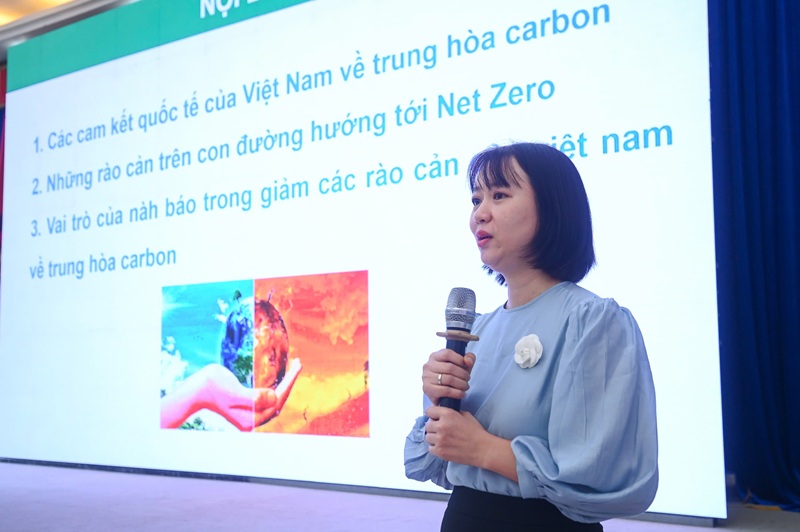
Assoc. Prof. Dr. Pham Thi Mai Thao explained that Vietnam faces multiple challenges in achieving net-zero emissions. Key barriers include incomplete institutional coordination, fragmented legal frameworks for carbon economy, carbon credits, and MRV (Measurement, Reporting, Verification) systems.
Regarding resources, the costs of transitioning to clean energy and low-emission technologies remain high, while access to international finance, renewable energy infrastructure, and the energy mix is still heavily reliant on coal. Many enterprises, particularly SMEs, lack adequate inventory and emission management tools, sustainable reporting data, and expert personnel in the Net Zero field.
Technical and monitoring obstacles are also significant, with unreliable MRV systems, fragmented emission data across sectors, limited legal mechanisms to compel emission reductions, and insufficient budgets for periodic measurement and inventory, especially in agriculture and waste management. These factors make it challenging to adopt international mechanisms, such as the EU Carbon Border Adjustment Mechanism (CBAM) or global supply chain Net Zero standards.
In this context, Dr. Pham Thi Mai Thao emphasized that while media plays a supportive role in raising awareness, monitoring policies, and fostering stakeholder collaboration, overcoming barriers primarily depends on institutional development, mobilizing finance, building technical capacity, and establishing reliable monitoring systems to effectively implement Vietnam’s Net Zero commitments.
Emission measurement and carbon management for sustainable agriculture
Assoc. Prof. Dr. Mai Van Trinh, Director of the Institute of Agricultural Environment, Ministry of Agriculture and Environment
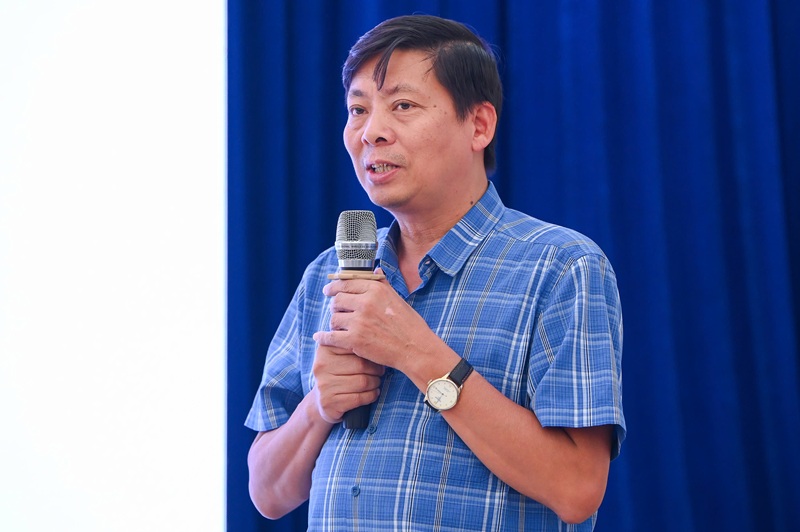
Assoc. Prof. Dr. Mai Van Trinh affirmed that greenhouse gas measurement and carbon management are essential scientific foundations for Vietnam’s emission reduction commitments and the development of sustainable, green agriculture. Agriculture is both highly vulnerable to climate change and a major source of emissions, primarily from rice cultivation, livestock production, and fertilizer
use. National inventories and emission measurement studies of CO₂, CH₄, and N₂O have enhanced transparency and fulfilled international obligations.
Dr. Mai Van Trinh highlighted emission reduction measures in rice cultivation, such as alternate wetting and drying (AWD) irrigation, appropriate organic fertilization, and utilizing straw for compost or biochar production, achieving 30–55% CH₄ reduction while improving soil fertility and lowering production costs. The circular economy model “CARICE” has reduced emissions by up to 40% compared to traditional methods and generated raw materials for mushroom cultivation, organic fertilizer, and biochar production.
He also stressed the importance of MRV systems in modern carbon management. Direct measurement, modeling, and IPCC-guided calculations are applied to monitor agricultural and forestry emissions, providing a scientific basis for carbon credits and the domestic carbon market. The government’s approval of the carbon market plan, along with Decree 119/2025/ND-CP, establishes a clear legal framework and encourages voluntary and innovative emission reduction and carbon sequestration initiatives.
According to Dr. Mai Van Trinh, effective MRV implementation and active participation in the carbon market will allow Vietnam’s agriculture not only to contribute to the Net Zero target by 2050 but also to generate new revenue streams from carbon credits, incentivizing farmers and businesses to invest in green production. Strategic steps from emission measurement to carbon management are crucial foundations for a low-emission, sustainable, and globally integrated agricultural sector.
Unlocking carbon reduction potential in Nghe An’s agriculture
Deputy Director of the Nghe An Department of Agriculture and Environment, Nguyen Danh Hung,
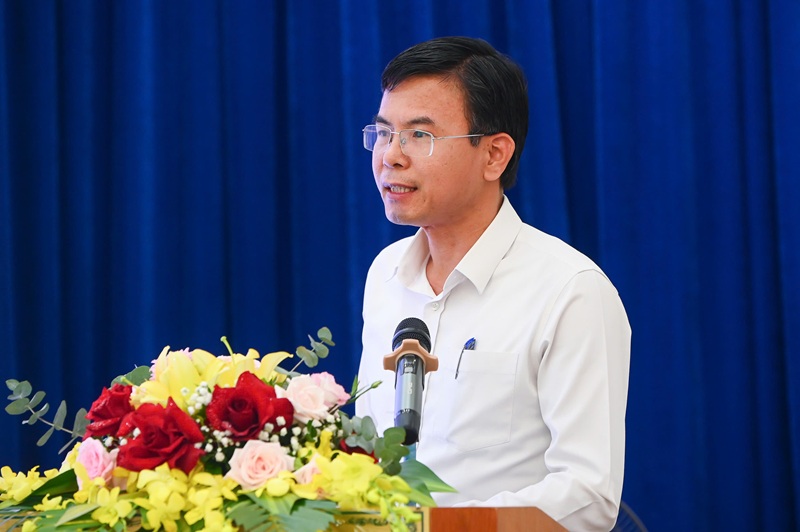
Deputy Director Nguyen Danh Hung shared practical experiences in implementing sustainable agriculture solutions and emission reduction in crop production, livestock, forestry, and aquaculture. He noted that the province has adopted effective forest management, high-tech livestock systems along sustainable value chains, and pilot low-emission rice production projects, contributing actively to carbon neutrality objectives.
To meet Vietnam’s Net Zero commitments under COP26 and the Politburo Resolution No. 39, Nghe An has implemented coordinated measures amid complex climate conditions, focusing on low-emission practices in agriculture, livestock, forestry, and aquaculture to advance green and sustainable agriculture.
Forestry is a key strength: Nghe An is among the three provinces with the largest forest cover nationwide, totaling over 1 million hectares with a canopy coverage of 59%. The province also participates in the Emission Reduction Payment Agreement (ERPA) mechanism in the North Central region, directly benefiting forest owners. In agriculture, pilot projects applying AWD irrigation on over 19,000 hectares of rice fields have reduced greenhouse gas emissions and generated carbon credits.
Mr. Nguyen Danh Hung emphasized that these initial results provide a foundation for further promoting sustainable agriculture toward Net Zero by 2050. He stressed the importance of raising awareness and connecting policymakers, scientists, and businesses, and committed that Nghe An’s Department of Agriculture and Environment will proactively implement carbon neutrality measures with continued support from ministries, agencies, and international organizations.
Learning from international experience to achieve Net Zero in Vietnam
Mr. Hoang Anh Dung, CEO of Intraco, a carbon finance expert with over 20 years of global project experience
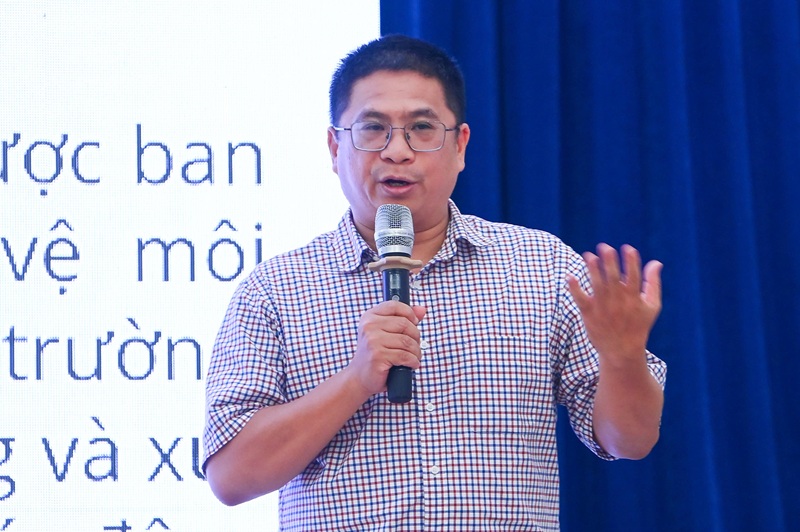
Mr. Hoang Anh Dung explained that achieving Net Zero requires a clear understanding of the difference between carbon neutrality and net-zero emissions. Carbon neutrality can be offset through reduction, avoidance, or removal credits, whereas Net Zero relies solely on removal credits. He emphasized that enterprises must measure and reduce actual emissions and only offset residual emissions via removal projects.
Mr. Hoang Anh Dung analyzed two approaches for enterprises: voluntary/self-declared—flexible but lacking verification; or compliance with international standards such as SBTi, Race to Zero, or ISO Net Zero—transparent, evaluated, and with structured timelines but requiring significant data, resources, and time. This forms a critical foundation for building carbon management capacity before transitioning to Net Zero.
At the national strategy level, he recommended key measures: increasing renewable energy share to >90%; expanding forested areas; recovering >90% of methane from landfills and livestock waste; applying AWD rice cultivation; utilizing >90% of agricultural by-products for energy or soil improvement; deploying CO₂ removal projects; and scaling up green hydrogen and biofuels for boilers and transport. He stressed that this is a long-term process demanding substantial financial, technical, and managerial resources.
As a case study, he cited TH Group, which applied the PAS 2060:2014 standard to its fresh milk (TH True Milk) and water products (TH True Water). Through measurement, internal emission reductions, and offsets via clean energy and technological improvements, TH achieved carbon neutrality and committed to maintaining it until 2028, preparing to transition to ISO 14068 standards toward Net Zero 2050. Mr. Dung concluded that learning from international experience, applying advanced technologies, and enforcing rigorous carbon governance are key for Vietnam to realize its Net Zero ambitions.
Bui Anh - Ngoc Huyen



